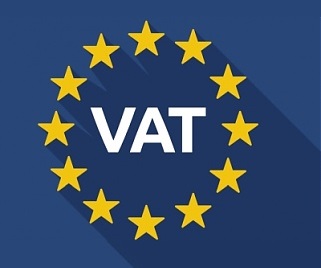

Since 2010, the Global Law Experts annual awards have been celebrating excellence, innovation and performance across the legal communities from around the world.
posted 4 years ago
A series of EU measures aimed to improve how value-added tax (VAT) works for ecommerce businesses have been long in the making. The first part of the package came into force back in 2015. Further measures followed in 2017 and 2019. The latest development — the adoption of the Commission Implementing Regulation (EU) 2020/194 on 12 February 2020 — marks the completion of the VAT ecommerce package.
The new rules will enter into force on 1 January 2021 and should make it easier for both consumers and businesses to buy and sell cross-border goods and services online. Among other things, the Implementing Regulation builds on the success of the Mini One Stop Shop (MOSS) for telecommunication, broadcasting, and electronic (TBE) services and extends it into a One Stop Shop (OSS). A number of other measures aim to further simplify and facilitate the payment and collection of VAT. This brief overview of the entire VAT ecommerce package means to help businesses adjust their infrastructure accordingly and be ready for 2021.
The VAT ecommerce package is one of the key priorities of the EU’s 2014–2019 Digital Single Market Strategy. Its main ambition is to simplify the VAT rules for enterprises that carry out online cross-border sales of goods or services to end consumers. Start-ups and small and medium-sized enterprises (SMEs), in particular, are likely to benefit greatly from the new system.
Another goal is to ensure that suppliers pay the VAT on such transactions to the Member State of the consumer, as per the principle of taxation in the country of destination. Once the full package is in force, Member States are set to recover an estimated €7 billion in VAT per annum that is currently lost on online sales.
The VAT ecommerce package also seeks to:
The VAT ecommerce package was introduced gradually in four stages.
The first set of measures came into force in 2015 and pertained to TBE services. As of 1 January 2015, VAT on TBE services in the EU is always taxed in the Member State of the end customer. To help TBE providers declare and pay VAT, a digital system called the Multi One Stop Shop or MOSS was set up.
MOSS allows businesses to declare VAT on services provided in Member States other than their own via a one-stop web-portal. Participation in MOSS is optional. It is, however, highly recommended: it dispenses with the need for companies to register in every Member State of consumption. A detailed overview of what MOSS is and how it works can be found here.
The Council adopted a second series of measures on 5 December 2017, consisting of:
Commonly referred to as “the VAT ecommerce package,” these legislative instruments introduced new rules for online sales of goods and services to end consumers in the EU.
Then, on 21 November 2019, the Council adopted further implementing measures. These complement the original VAT ecommerce package and will enter into force on 1 January 2021:
The Commission adopted the latest measure from the package, the Implementing Regulation (EU) 2020/194, on 12 February 2020. Among other things, it seeks to improve the current MOSS by transforming it into a One Stop Shop (OSS). The OSS will cover not only TBE services but also:
The VAT ecommerce package was always intended to come into effect gradually. This way, businesses would have ample time to prepare and adapt to the new rules.
2019 saw the introduction of two thresholds meant to streamline the VAT obligations of SMEs and microbusinesses:
Furthermore, it is the invoicing rules of the Member State of the supplier and not those of the Member State of consumption that will apply.
The 2019 measures also brought about changes in the MOSS rules. TBE businesses that are not established in the EU but have an EU registration for VAT purposes will be able to take part in the MOSS scheme for taxable persons not established in the EU.
The rules on electronic interfaces and the transformation of MOSS into an OSS come into effect on 1 January 2021. That means businesses will have to adapt their IT systems to bring them in line with the new provisions.
More specifically, a business that operates an electronic interface such as a platform or an online marketplace will, in certain contexts, be considered to be the supplier of goods sold to consumers in the EU by the companies that use that platform or marketplace. Therefore, the business would have to collect and pay VAT on those sales.
The transition of the current MOSS into an OSS means that the non-Union scheme for TBE service providers will extend to all types of cross-border services provided to end consumers in the EU.
What’s more, the Union scheme for intra-EU cross-border TBE services will also extend to:
Furthermore, the new measures dispense with the current distance sales VAT threshold to comply with the country of destination principle.
The new rules also provide for the creation of an import scheme. It will apply to distance sales to consumers in the EU of goods from third countries or territories with a value of up to €150. The vendor will charge and collect VAT at the point of sale but will pay it to the Member State of identification in the OSS. As a result, such goods will be subject to VAT exemptions and fast release at customs. This scheme also abolishes the current VAT exemption for goods in small consignments with a value of up to €22.
A further simplification mechanism will be available to third-country goods that do not use the import OSS. The customs declarant — a courier firm, postal operator, or customs agent — will collect the import VAT from customers. They will then pay it to the relevant customs authorities on a monthly basis.
For more information please contact us at [email protected]. We will be happy to further assist you.
Author


There are no results matching your search.
Resetposted 4 days ago
posted 5 days ago
posted 5 days ago
posted 5 days ago
There are no results matching your search.
ResetSign up for the latest advisory briefings and news within Global Advisory Experts’ community, as well as a whole host of features, editorial and conference updates direct to your email inbox.
Naturally you can unsubscribe at any time.
Global Advisory Experts is dedicated to providing exceptional advisory services to clients around the world. With a vast network of highly skilled and experienced advisers, we are committed to delivering innovative and tailored solutions to meet the diverse needs of our clients in various jurisdictions.